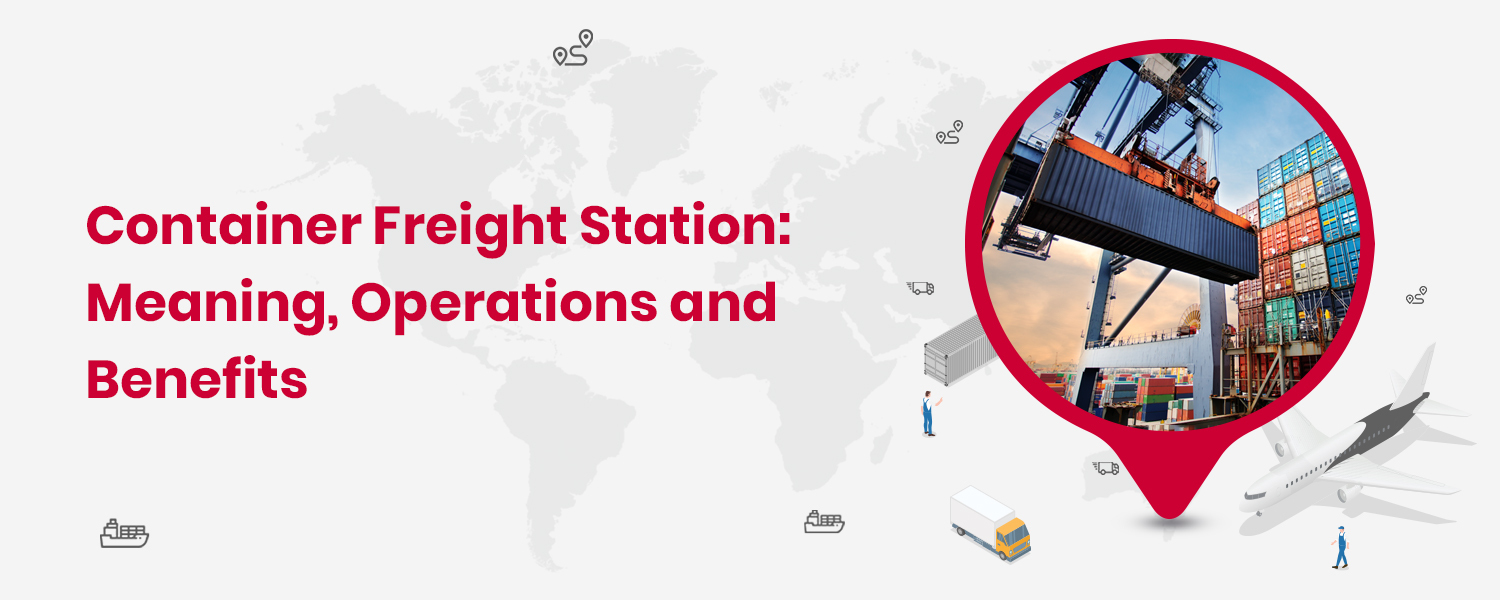If you regularly ship smaller loads (known as LCL), keeping costs down and streamlining the process can be a constant battle. Container Freight Stations (CFS) are designed to solve these exact problems. It saves you money, speeds up the process, and reduces the frustrating paperwork that often comes with LCL shipping.
Let’s take a closer look at what a CFS is, how it works, and the major benefits it offers your business.
What is a Container Freight Station?
A Container Freight Station is like a super-efficient sorting centre for your cargo. It plays a key role in containerisation. It is a specialised warehouse where smaller shipments (called “Less than Container Load” or LCL) are grouped together or split apart. This is crucial because shipping individual small loads would be costly, time-consuming, and a paperwork nightmare.
You know the headaches in LCL shipping. There are unpredictable costs, potential delays at ports, and enough forms to make your head spin. A CFS tackles all these pain points by streamlining the process.
CFS facilities aren’t random. They’re strategically placed near major ports, rail hubs, or big warehouses. This makes it easier to move your consolidated cargo quickly to its final destination.
CFS Operations: How It Works
The Export Process
- Delivery Day: Your truck pulls up to the CFS with your carefully packed LCL shipment.
- Unloading & Inspection: CFS workers unload your goods and give everything a quick check for paperwork and any obvious issues.
- Customs Clearance: This is where CFS saves you major headaches. They handle those complex customs forms and procedures on your behalf.
- Container Magic: Once customs gives the green light, your cargo is combined with other shipments headed to the same destination.
- Setting Sail: The fully loaded container is sealed, labelled, and sent off to the port for loading onto a ship.
The Import Process
- Container Arrives: Your container reaches the destination port and is transported to the CFS.
- Breaking it Down: CFS workers carefully unload the container and sort shipments by their final destination.
- Paperwork: Again, the CFS team tackles the customs process, making sure all the paperwork is in order.
- Ready for You: Once everything clears customs, you’re notified. Now, instead of picking through a massive container, you only need to collect your specific goods.
Who Owns and Operates CFS Facilities?
The ownership range is good for shippers. It means you have the choice to compare factors like location, pricing, and specialisations when selecting the CFS that best aligns with your shipping needs.
There isn’t a single player. CFS facilities can be owned and operated by different players in the shipping industry:
- Shipping Lines: Some major shipping lines run their own CFS facilities to handle their LCL cargo.
- Trucking Companies: Since they specialise in moving goods, many trucking companies also operate CFS warehouses.
- Logistics Providers: These companies handle the entire container shipping journey, often using freight forwarding services, so it makes sense for them to offer CFS services as part of their package.
CFS vs. ICD: What’s the Difference?
| Feature | CFS (Container Freight Station) | ICD (Inland Container Depot) |
| Cargo Type | LCL (Less than Container Load) | FCL (Full Container Load)
|
| Location | Typically near major ports | Located inland, away from ports |
| Primary Goal | Streamline LCL shipping, reduce costs | Reduce port congestion, handle FCL cargo |
Why Use CFS? The Benefits Breakdown
1. Major Cost Savings
Consolidation is the name of the game with CFS. Instead of paying to ship your smaller loads individually, they’re combined into a full container, significantly reducing your costs.
2. Time is on Your Side
CFS facilities are experts at navigating customs procedures and paperwork. This speeds up the entire process, so your shipments move faster, and you avoid costly delays.
3. Say Goodbye to Shipping Stress
Paperwork and logistics can be a nightmare. With a CFS, a dedicated team handles the headache-inducing details, so you can actually focus on growing your business.
4. Security & Peace of Mind
CFS warehouses provide a secure, controlled environment for your goods. This means a lower risk of damage or loss during that crucial consolidation or deconsolidation stage of the journey.
Conclusion
If your business relies on LCL shipping, utilising a CFS can be a game changer. Let’s not forget that CFS facilities facilitate smooth transhipment, where freight moves through intermediary destinations within an intermodal container. This flexibility is vital in today’s complex supply chains.
Ready to explore the advantages of CFS shipping? NimbusPost simplifies the process, helping you find the perfect CFS container for your needs. Along with our streamlined container sourcing, the platform offers multi-carrier comparisons, seamless automation, and real-time data to optimise your entire shipping operation.




